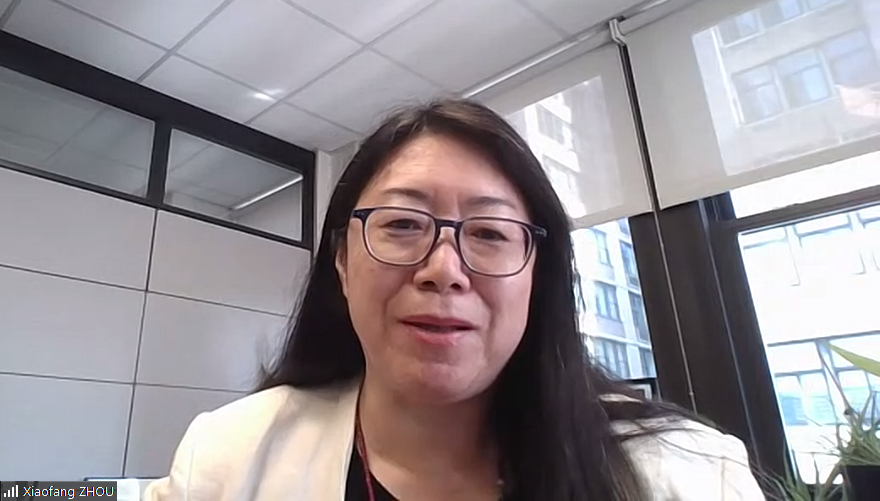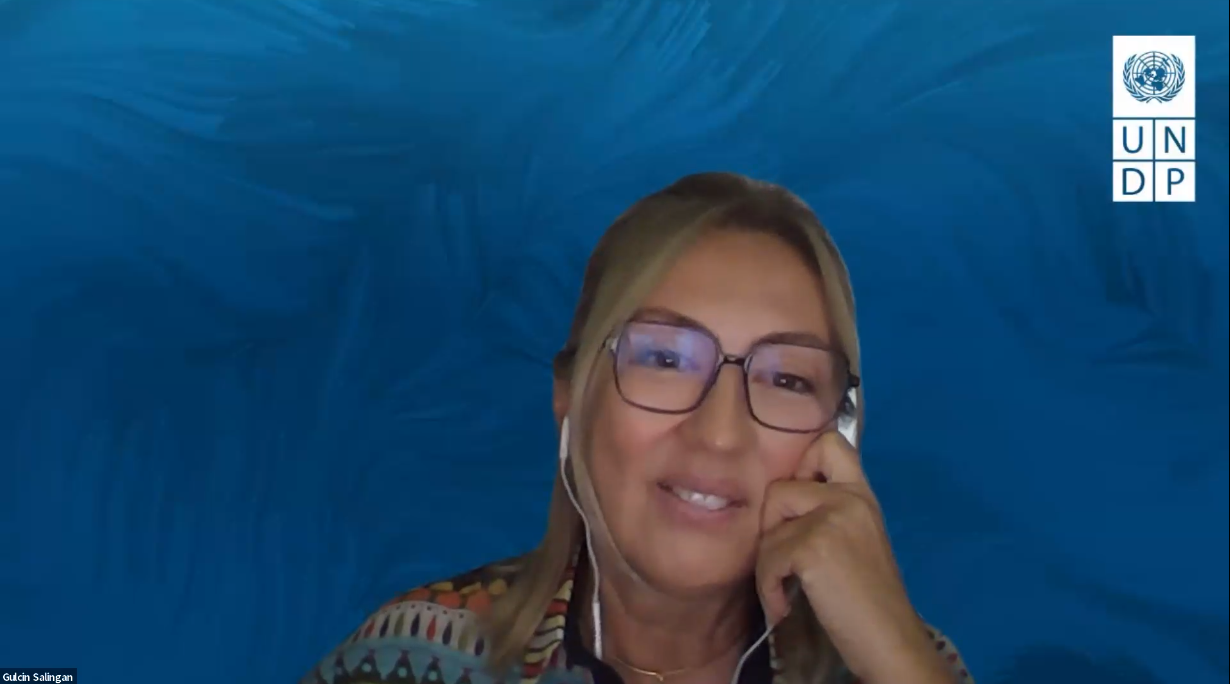UNDP marks UN International South-South Cooperation Day with the launch of its new report on "Harnessing the Role of the Private Sector in Waste Management through South-South Cooperation for Inclusive Urbanization"
UNDP launches new report on South-South Cooperation in Waste Management
September 12, 2023

To mark the UN International South-South Cooperation Day, UNDP ICPSD and UNDP South-South and Triangular Cooperation (SSTC) Network, organized a webinar for the launch of their report on good private sector waste management initiatives coming from the Global South. The joint webinar featured analysts and report authors, that shared their insights and experiences for advancing sustainable waste management practices.
The report, titled "Harnessing the Role of the Private Sector in Waste Management through South-South Cooperation for Inclusive Urbanization", provides a snapshot of the municipal solid waste management ecosystem in 12 cities in the Global South, with a focus on private sector-led best practices that can be scaled up through SSTC.
“South-South and Triangular Cooperation is enriching and diversifying development efforts and means through a variety of flexible cooperation modalities. By this we mean knowledge exchanges, technology transfers, mutual learning, peer-to-peer support and innovative financing,” said ICPSD’s Deputy Director Gülcin Salıngan in her opening remarks.
Indeed, the role of SSTC in sustainable development has grown substantially and is increasingly requested by countries, especially since the COVID-19 pandemic. Private sector engagement further expands and enhances the outreach of SSTC, which is paramount for the achievement of the Sustainable Development Goals (SDGs). ICPSD supports private sector companies in tailoring their business models to support the SDGs, including SDG 11 which aims to make cities and human settlements inclusive, safe, resilient, and sustainable.
The UNDP SSTC Policy Specialist Juliana Gargiulo also highlighted the importance of engaging the private sector on SSTC for sustainable development by saying, “SSTC is no longer only government-to-government but is increasingly engaging a variety of diverse actors and development partners. The private sector can bring innovative financing to allow developing countries to share good practices, and I'm not talking only about financial resources, but also about technologies and other resources and expertise that can be impactful in developing countries and for developing countries.”
To discuss the particular significance of private sector engagement for waste management, UNDP ICPSD’s SSTC Researcher Yunis Sharifli and the Technical Specialist Aslıhan Albostan talked in more detail about the findings of the report and the policy suggestions that stemmed from those. For the report, the 12 cities were selected based on GDP, total waste production, and geographic variety. The focus was specifically on Municipal Solid Waste, which includes food waste, paper, plastic, rags, metal, and glass.
By identifying and shedding light on the good practices within the context, encouraging cooperation amongst the Global South countries, and promoting private sector engagement in the waste management sector, the report aims to show that it’s possible to replicate and scale up these practices and ultimately achieve an inclusive urbanization scenario in the future. It outlines challenges, highlights innovative policies, and offers tailored recommendations.
The report aims to address unsustainable waste management practices that persist in the Global South due to financial and technical limitations. The Global South's plight underscores the gravity of the issue, revealing disparities between regions. Factors including population growth, economic advancement, improved living standards, and accelerated urbanization drive municipal solid waste production and intensify the challenge. Deficiencies extend through collection, processing, and disposal stages. Erratic services leave vast areas underserved, while inadequate vehicle availability, often compounded by poor maintenance, leads to disruptive delays. Complicating matters is the mismatch between waste management infrastructure and rapid but unequal progress.

To share their insight on some of the challenges and specific solutions mentioned in the report, experts on waste management, innovative financing, and SSTC took part in a panel discussion, moderated by UNDP ICPSD’s SSTC portfolio lead Johannes Sahmland-Bowling. The audience benefitted from the knowledge and experience of Mr. Weine Wiqvist, Senior Advisor at Avfall Sverige, who highlighted the report’s examples of integrating the informal sector in waste management and the need to plan, replicate, and implement such solutions at scale. Mr. Can Atacik, Founder of Alethina Impact Investments, discussed the attractiveness of engaging in waste management from an impact investment perspective, namely the environmental benefits, measurability, profitability, and commercial appeal of that. Finally, Ms. Bineswaree Bolaky, Economic Affairs Officer at UNECA, talked about the need to develop specific instruments and mechanisms in Africa that utilize SSTC to finance the SDGs, aside from the existing ones for technology transfer and capacity-building.
The launch event concluded with remarks from the UNDP Chemicals and Waste Hub Director Xiaofang Zhou who shared her hopes for creating a cleaner new world by learning from other countries’ successes. “As UNDP we are trying to support developing countries, and particularly their local institutions on a municipal level, to move in a new direction – one with zero waste and pollution. There are some good practices from the Global South that we can learn from and if we develop a waste management strategy at the city and country levels that puts policy, finance, solutions, and public-private partnerships together, we can move towards a new world and a new more sustainable global economy.”

*****
The report was led by the UNDP Istanbul Center for Private Sector in Development (ICPSD) and supported with inputs and guidance from the South-South and Triangular Cooperation/ SDG Integration team (SDG-i) of UNDP’s Bureau for Programme and Policy Support (BPPS) in HQ.
Watch the webinar here:
*****
About UNDP ICPSD
UNDP’s Istanbul International Center for Private Sector in Development (ICPSD) supports the private sector and foundations to become transformative partners in development through research, advocacy for inclusive business, facilitation of public-private dialogue, and multi stakeholder-partnerships.
About UNDP’s SSTC
UNDP considers SSTC as a fundamental approach to development cooperation and is viewed as an effective interlocutor, leveraging its network of offices, policy centers and expertise at global, regional and country levels in more than 170 countries and territories to foster SSTC. SSTC is in UNDP’s DNA, as the Organization has a long history as a trusted knowledge broker, partnership facilitator, and a capacity development facilitator of SSTC. Visit UNDP’s SSTC online space and UNDP SSTC Yammer/Viva Engage to learn more.
*****
Further information:
- Johannes Sahmland-Bowling, South-South and Triangular Cooperation Team Portfolio lead at UNDP ICPSD, johannes.sahmland-bowling@undp.org
- Juliana Gargiulo, South-South and Triangular Cooperation Policy Specialist at UNDP, juliana.gargiulo@undp.org
- Gergana Georgieva, Communications Consultant at UNDP ICPSD, gergana.georgieva@undp.org

 Locations
Locations

